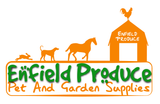Bulk Compost Worms 1kg. Volume discounts available, see above!
Ideal for compost toilets, extra-large worm farms and other uses requiring larger amounts of compost worms.
DISCLAIMER: Please note that the 500, 1000 and 2000 worm packs (see below) are generally enough for standard worm farms like the ones we sell. These 1kg bulk packs have about 4000 worms and are packed in coconut fibre (so they only have a few days shelf life). Since they have such a short shelf life, these 1kg bulk packs are not kept in stock but are ordered in after your order is placed online. Stock usually takes 3 to 14 days to get in. In times of short supply, it may take weeks or months to get stock. In these cases, you can decide to cancel and refund the order if you can't wait the estimated time.
Delivery Note: This item is Sydney Delivery Only. For other areas we may still be able to do it but please email us before ordering.
Order Quantity Limit: Generally speaking we have a 2kg per order limit. For bigger orders please email us beforehand.
Compost Worms eat our food waste – 1000 worms in a worm farm will eat around 125 grams of food waste per day producing valuable liquid, castings and baby worms for your garden. Over time the population will increase and depending on the size of your worm farm eat more and produce more. Typical domestic worm farms like the Worm Cafe are capable of producing around 2 litres of (10:1 diluted) liquid per week, 30-40kgs of castings per year and thousands of baby worms. Great care is taken to pack our worms in damp coconut fibre in polycarbonate woven bags for good air flow within a waxed box for safe delivery.
About Compost Worms:
Compost worms are tireless in converting organic (food and garden) waste into worm castings (manure) which is a complete organic fertiliser for plants. Charles Darwin first demonstrated how worm castings rejuvenate and enrich the soil. His experiment with potatoes showed their roots growing directly towards the castings, searching for their fine balance of nutrients. There are three main species of compost worms also known as earthworms – Reds (eg, lumbricusrubellus) and the striped Tigers (eg, eiseniafoetida) are European imports now common in Australia, but there are over 300 native varieties including Blues (eg, Octolasion cyaneum).
The average length of composting worms is from 50 – 150mm. Worm farming at home, work, school and in the community will help reduce pollution through landfilling. Around 5% of global greenhouse gases are caused by organics in landfills; worm farming and composting can stop this pollution and return the benefits to the soil.
Worms in worm farms like to eat most fruit and vegetable scraps but need them cut into small pieces, as they eat by sucking. Acidic foods like citrus, onion and dairy should only be used sparingly with lime or dolomite added to balance the pH. Worm farms generally produce - liquid, castings and baby worms all of which make healthy additions to your garden. Compost worms can also be used as food for other animals like birds and fish, including use as bait.
During autumn and spring and given optimum conditions, compost worms breed rapidly and may lay a capsule (cocoon) weekly. Each capsule contains between 2 and 20 baby worms which hatch in under three weeks and reach maturity in three months.
Worms are hermaphrodites (both male and female); they mate and each worm becomes pregnant at the saddle (clitellum – the lighter coloured section around 20mm below the head). To breed successfully your worm farm should be kept damp, cool, quiet and dark.
